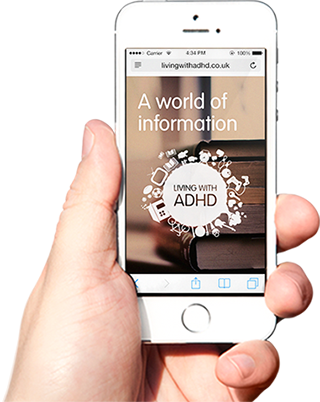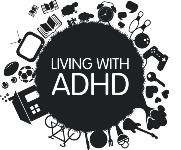Parents - ADHD Top ten hints and tips
Top ten hints and tips
Here are some suggested hints and tips that may help you cope with caring for your child with ADHD
1. Don't blame yourself for your child's ADHD
Parents of children with ADHD can feel guilty and responsible, but you did not cause your child's condition. Focus on the positive: you can help, encourage and support your child now that you both know what the problem is.
2. Find out as much as you can about ADHD
Good ways to do this are to:
- Talk to people involved in your child's care (doctors, teachers, nurses)
- Read up on the subject - some further reading is recommended here
- Use the internet. There are lots of useful websites and resources to download. Look here for some suggestions to get you started
- Contact a support group. Organisations exist to help people with ADHD and their families
3. Accentuate the positive
By focussing on your child's strengths, and praising and rewarding good behaviour, you will boost their confidence and self-esteem. Children with ADHD can fall into a vicious circle of bad behaviour, followed by criticism, which makes them feel bad about themselves, which then leads to further bad behaviour. Try to provide positive reinforcement of their strengths instead, to make them feel better and motivate them to behave well. Reward schemes using star charts or points, which gets the child something they want, can help to encourage and maintain good behaviour.
4. Communicate clearly and specifically
Tell your child what you want them to do, rather than what not to do; make sure you have their full attention by turning off the TV or radio and looking them in the eye; speak clearly without shouting; be specific with requests (for example, "please pick up your clothes and put them away in the wardrobe, then make your bed" rather than "clear up this mess, your room is a tip!").
5. Choose your battles and set clear rules
Focus on the most important areas of behaviour that you really want to change, and don't waste effort on less important ones. Agree clear rules with your child, and write them down to cut down on arguments.
6. Plan for peace
Organise things to avoid undue stress and confrontation. If trips to the supermarket with your child are a nightmare, try to rearrange your schedule so you can do them at a different time, or when someone else is with you to help. If long car journeys are a battle, break them up with frequent stops for your child to "let off steam".
7. Distinguish the behaviour from the child
Rather than criticising your child when they misbehave ("I've told you a million times not to interrupt while I'm talking on the phone, are you deaf?"), focus on the behaviour and its consequences ("It was really distracting when you kept interrupting just then, so it took much longer for me to finish the phone call, and now we might not get to the park in time to meet your friends").
8. Learn to distinguish "Can't" from "Won't"
Every child misbehaves wilfully sometimes. Being loud and rowdy, interrupting people, refusing to sit still or being untidy can be deliberate in children both with and without ADHD. As your child's parent, you are best placed to become the expert on whether their behaviour is something that they can't help because of their ADHD (though even this can be worked on and improved), rather than wilful naughtiness.
9. Count to three and use "time out"
Do this when your child misbehaves. Counting to three gives your child the chance to "backtrack" on naughtiness and allows you to praise their decision to behave well: "Charlie, please give the truck back to James. I'm counting to three: one...(wait a few seconds)…two.... (more forcefully).. .three. Well done, Charlie. James, how about saying thank you to your brother?"Time out provides a way for both you and your child to cool off. Choose a designated place (a chair, a step, a corner) and use a clock or timer for the time out period (five or ten minutes). Be firm: don't speak to your child during the time out and don't answer them if they speak. When the time is up, the slate is clean. If they refuse to go the designated place, impose a sanction - loss of computer time, no play date after school, etc - and stick to it.
10. Look after yourself
Being the parent of a child with ADHD can be exhausting, frustrating and demoralising. You cannot be a good parent if you are at your wits' end, so try to have a break and get some time to yourself or go out with friends. Talk to other parents in the same situation, and accept help and support when it is offered. Look after your own health, and go to your doctor if you feel depressed or unable to cope.


Resources
Visit our resource centre for useful information and helpful activities for parents, teachers and teenagers living with ADHD.
